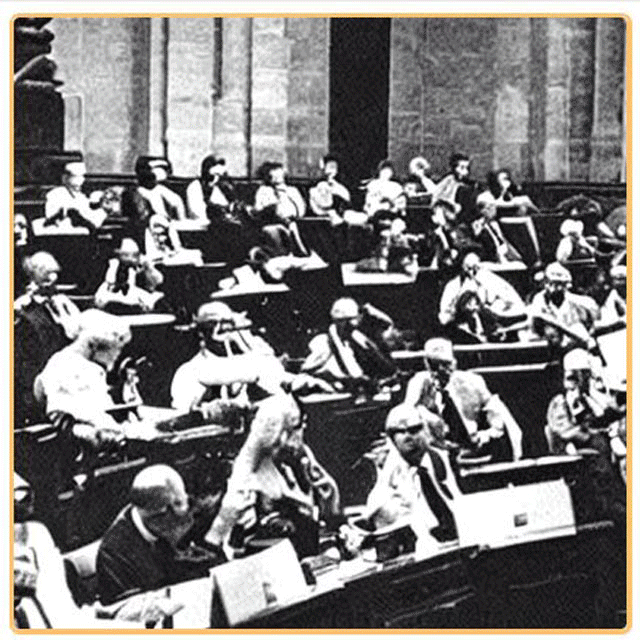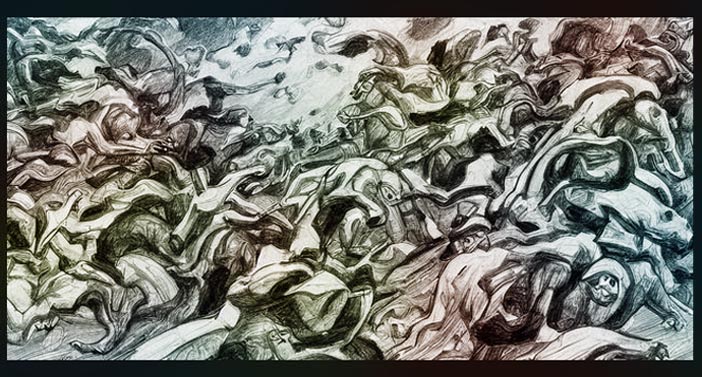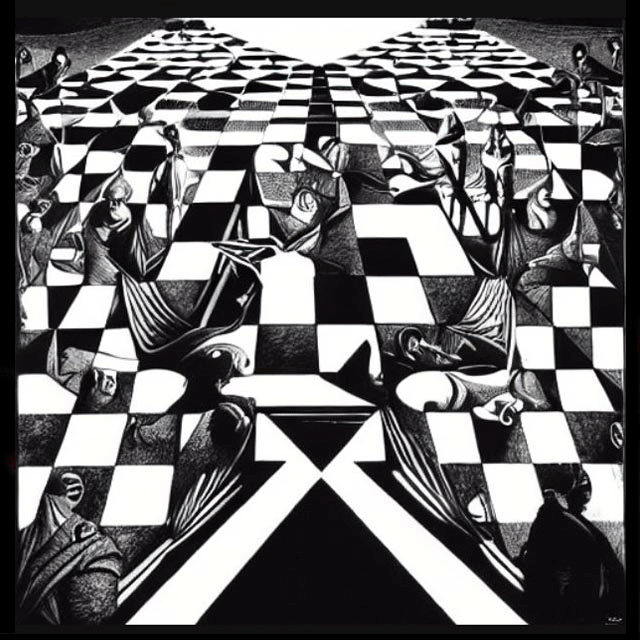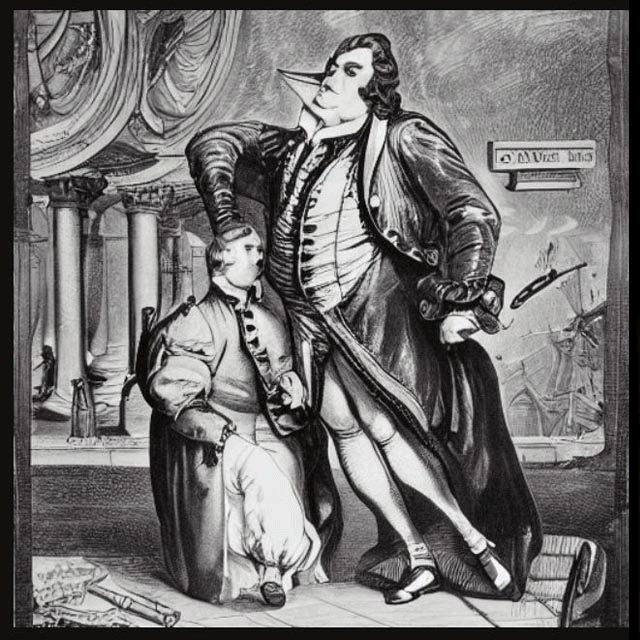Reflections on the decision-making behaviour of the individual
The term information pathologies comes
from behavioural economics and
psychology. The concept of information
pathologies basically states that
information can be wrongly present,
wrongly transmitted and/or wrongly
encoded. This term goes back to Harold
L. Wilensky. In 1955/56, the social
scientist Herbert A. Simon introduced
the term bounded rationality to describe
a certain type of decision-making.
The individual strives to consciously
act rationally (the striving for the
so-called ideal of rationality). But
cognitive limits to information intake
and processing prevent individuals from
making objectively rational decisions.
Concentration on facts and figures can
push otherwise interpretable contexts of
an issue into the background.
According to Wilensky, the main cause of
information pathologies is rooted in the
ideal of rationality.
Several information pathologies can
reinforce each other in their effect.
Research has shown that innovation
success is almost impossible when
information pathologies become
entrenched.
Information pathology
is a collective term in industrial
psychology for various aspects that can
fail in the generation, exchange and
application of information, with the
result that decisions are made on the
basis of an inadequate information base.
One speaks of an information pathology
when there are factors in an
organisation that systematically
negatively influence the quality of
information supply to decision-makers.
Basically, a distinction can be made
between structural information
pathologies (e.g. due to excessive
hierarchy or centralisation) and
doctrinal information pathologies (due
to the prevailing ideology or culture).
Information pathologies are
avoidable errors in knowledge production
and communication. Individual phenomena
such as groupthink, information overload
or self-serving bias are closely related
to information pathologies and have been
studied within the framework of general
psychology and social psychology.
However, the concept of information
pathologies involves a much more general
view of barriers to information
processing.
https://scilogs.spektrum.de/psychologie-des-alltags/informationspathologien/
An empirical
study was able to show that the exercise
of power is a major cause of information
pathologies
(Scholl,
1999).
Conclusion:
The use
of power has a negative effect on
knowledge growth
This text-to-image is created by the following keywords: Data, power, controll
By increasing self-awareness and teaching knowledge concepts, the perception of information pathologies can be sensitised. But before measures to improve communication are introduced on a cognitive level, a trusting attitude based on acceptance is needed.
However, in everyday life, people allow
themselves to be influenced by their
unconscious desires, needs and
conflicts. One has dreams that are not
one's own.
Power, however, consists
precisely in controlling the
acquisition, possession and application
of this information.
This is the
honey pump. Like busy little bees, we
give up our data voluntarily and often
with the greatest enthusiasm to the
instruments of power.
The world has changed - since at least 2011: indignations, indignations
Already in 2011, journalist John
Harris wrote an article about the
global upheavals, referring to a New
York Times article "2011, the year
of global outrage
"
John Harris
@johnharris1969
Tue 15 Nov 2011 20.00
GMT
https://www.theguardian.com/world/2011/nov/15/global-protests-2011-change-the-world
These "indignations" and "outrages" continues to this day and is unifyingly categorised as resistance. But the term resistance as it is used today has its own history.
The term "resistance" largely replaced earlier terms such as "emancipation", "liberation", "a society free from exploitation", "a society free from alienation" and the like. What are the consequences and implications of this standardisation?
So there is a critique of Foucault's concept of power.
Michel Foucault: "Where there is power, there is resistance, and yet, or rather consequently, this resistance is never in a position of exteriority in relation to power...Their [power relationships] very existence depends on a multiplicity of points of resistance...Hence there is no single locus of Great Refusal, no soul of revolt, source of all rebellions, or pure law of the revolutionary. Instead there are specific cases of resistance...They are the other in the relations of power; they inscribe themselves as irreducible in relation to it"
Foucault outlines power as a "relationship", "not something that is acquired, grasped or shared".
The conclusion is: Resistance here is a concept inherent to power, ultimately generated by power and thus challenging power from within.
At this point, once again: as in
structuralism, with Foucault the
individual is neither a product of
the Enlightenment nor the subject of
autonomous economic action.
In
Foucault's theory, the subject is in
fact the object and product of a
knowledge/power relationship. The
human being is, so Foucault, already "in itself
the result of a subjection".
So Foucault's concept of power is
closely linked to his theory or
analytics of discourses and the
production of knowledge. Thus,
power/rule is tied to knowledge or
the dissemination of knowledge.
Control over information ensures and
safeguards the legitimacy of
supremacy.
If one thinks
Foucault's theory through
consistently, this means that one
should no longer believe anything
(as an act of restistance).
With this discourse of power - and
especially Foucault's critique of
the Great Refusal - it has become
fashionable to replace the term
revolution with that of resistance.
Foucault's critics write that such a
concept of resistance "does not
allow for the radical gesture of
thoroughly restructuring the
hegemonic symbolic order in its
entirety"
(Introduction to Marcuse,
Philosophy, Psychoanalysis and
Emancipation, NY: Routledge, 2011,
p. 63).
Foucault describes a concept of
resistance that does not distinguish
between different types of
resistance to power, whether
reactionary or emancipatory.
Foucault's concept of power obscures
the possibility of actually
overcoming the rule of capital and
the state in a positive,
emancipatory way by locating the
concept of resistance within power.
This does not allow for
emancipation. Marcuse's Great
Refusal, for example, would be an
example of emancipatory politics.
Unfortunately, Marcuse's "Great
Refusal" remains too abstract.
Karl Marx was also guided by a
vision of an emancipated human
future.
So it is about the emancipated human being.
See the next pages:
- The private view
- The individual
- The community of Coyomeapan
- I have to change my life
- Riding the storm (introduction 1)
- The world (introduction 2)
- The comfort zone (introduction 3)
- The fetish in the spectacle






